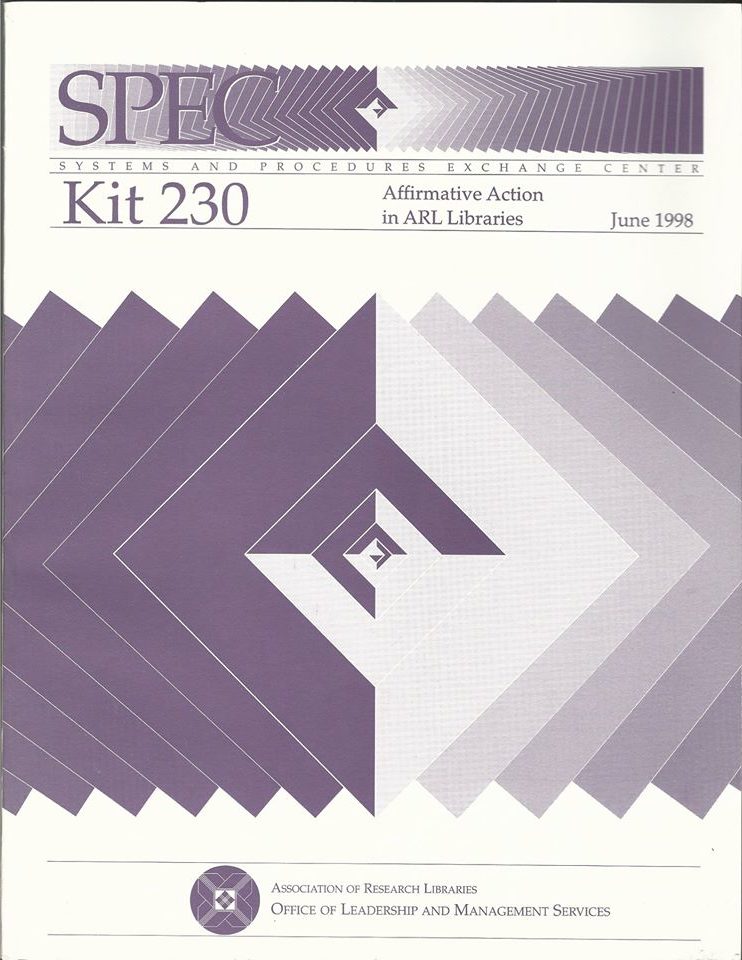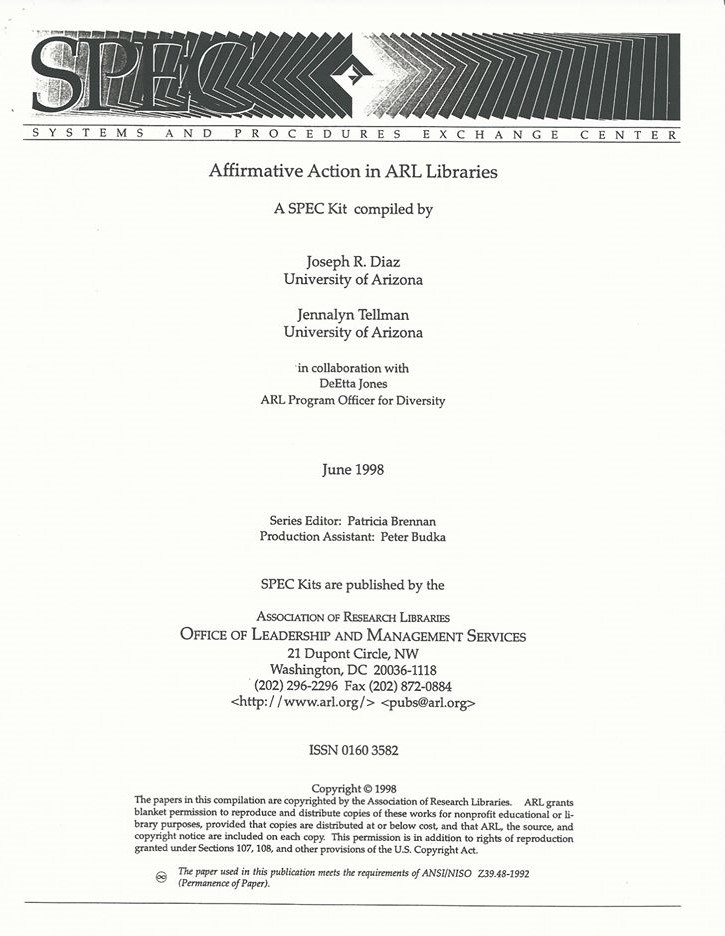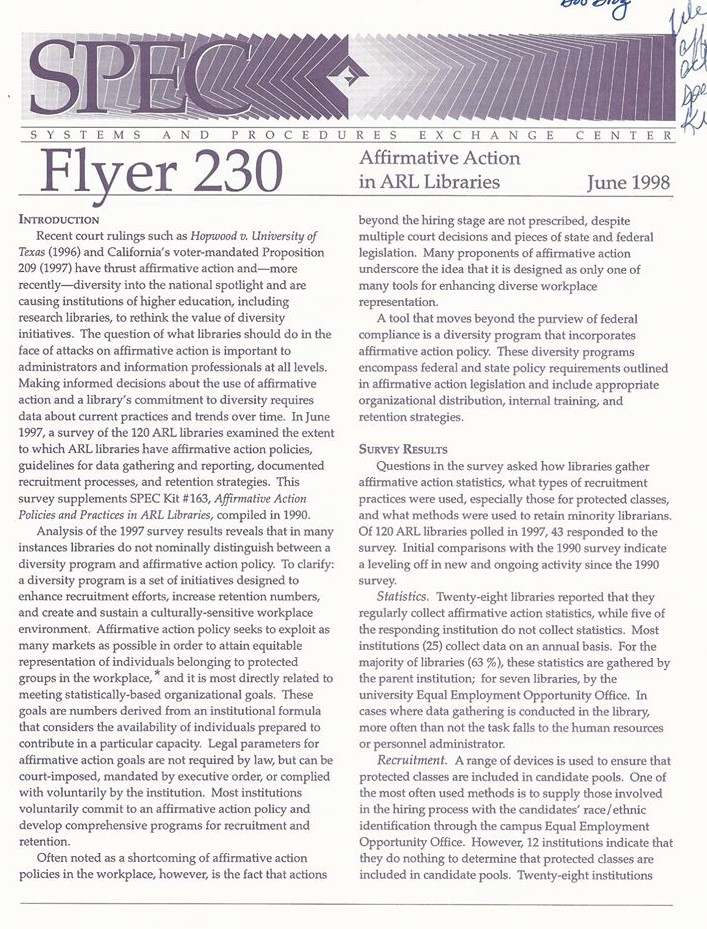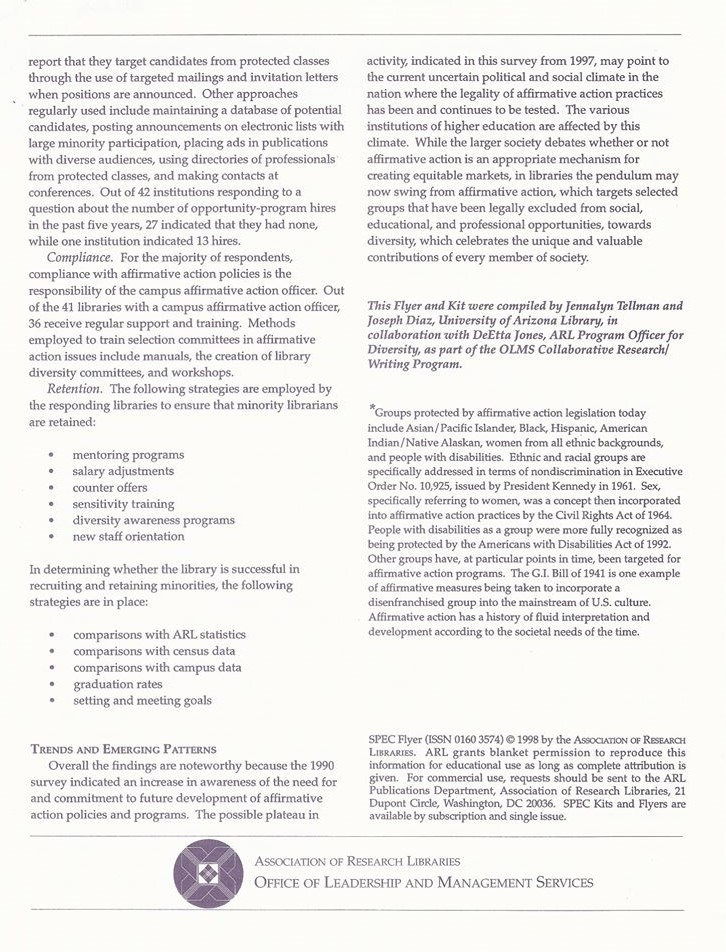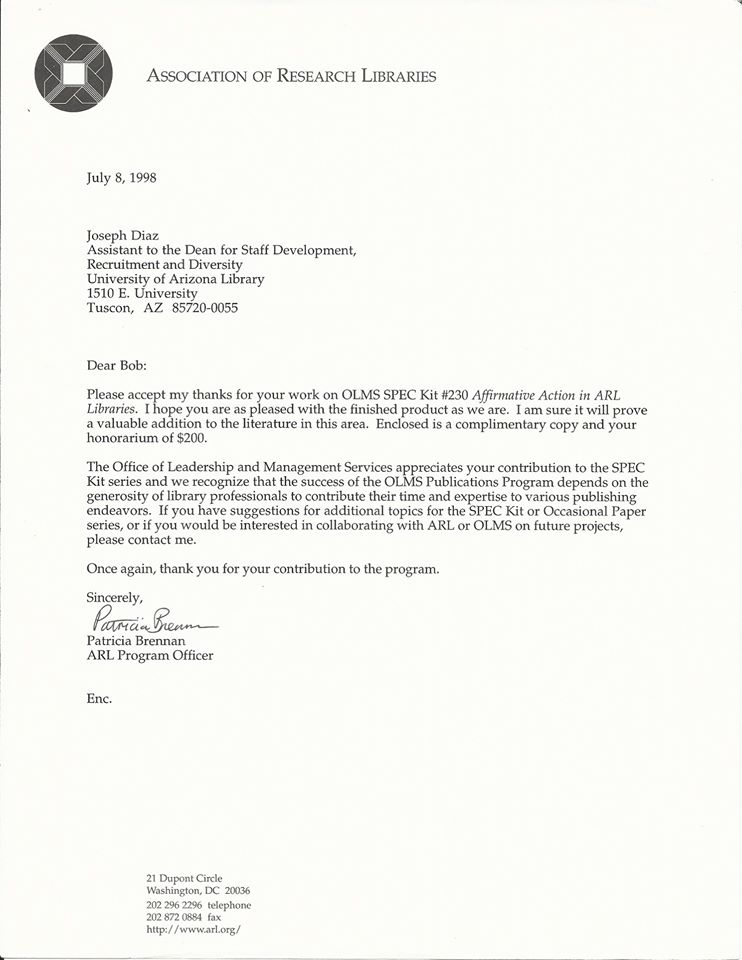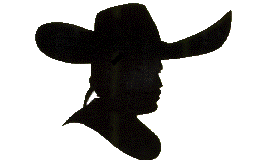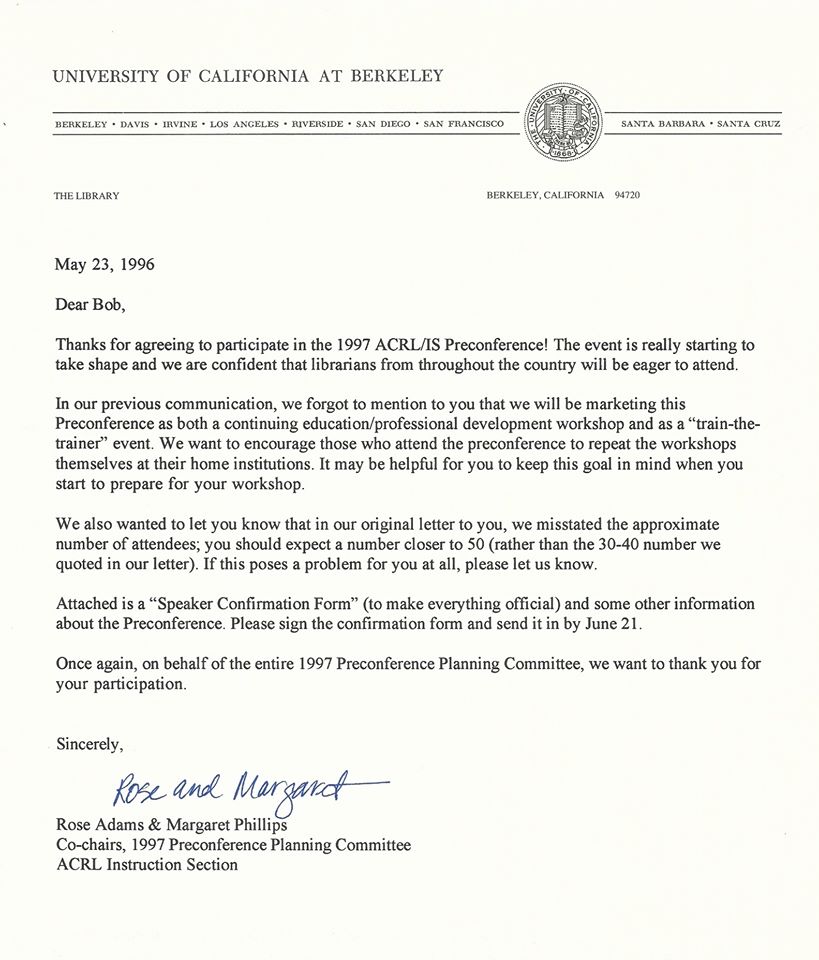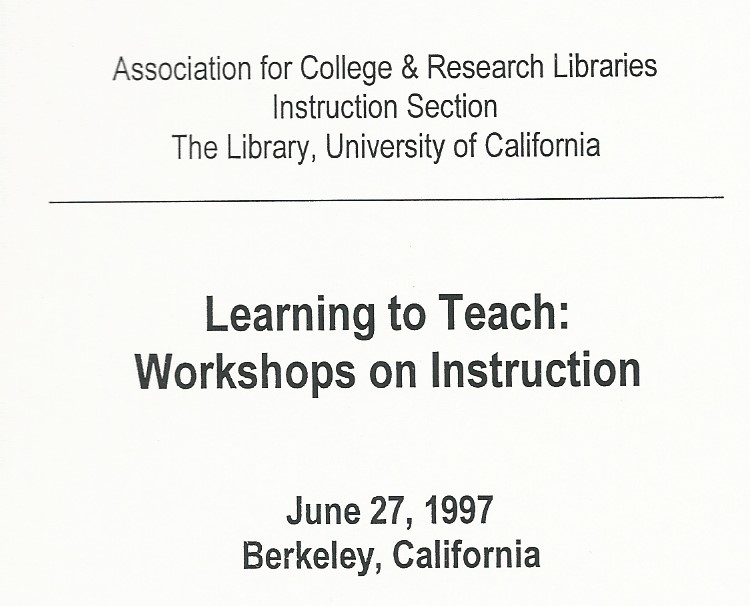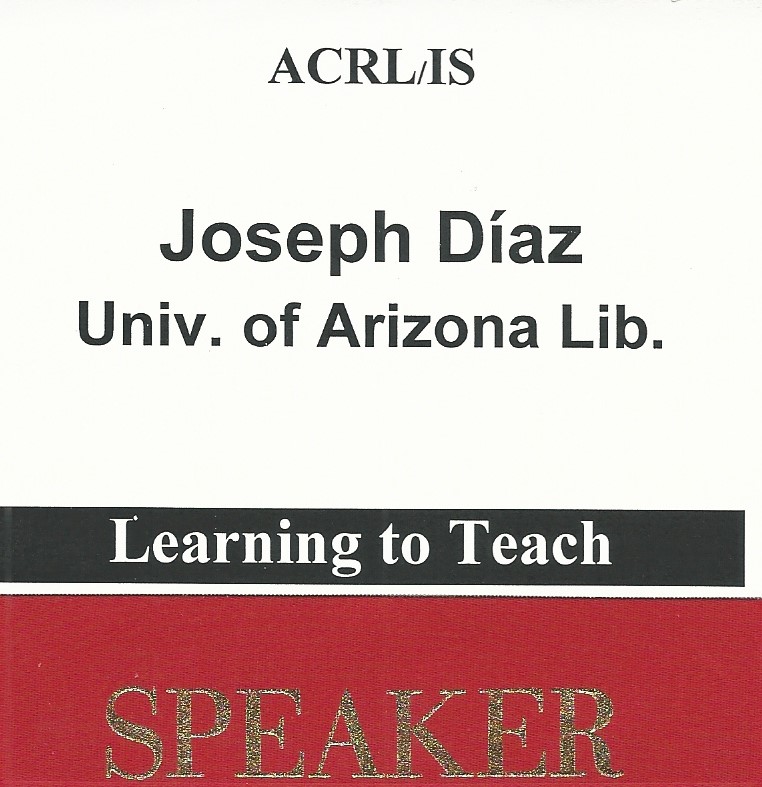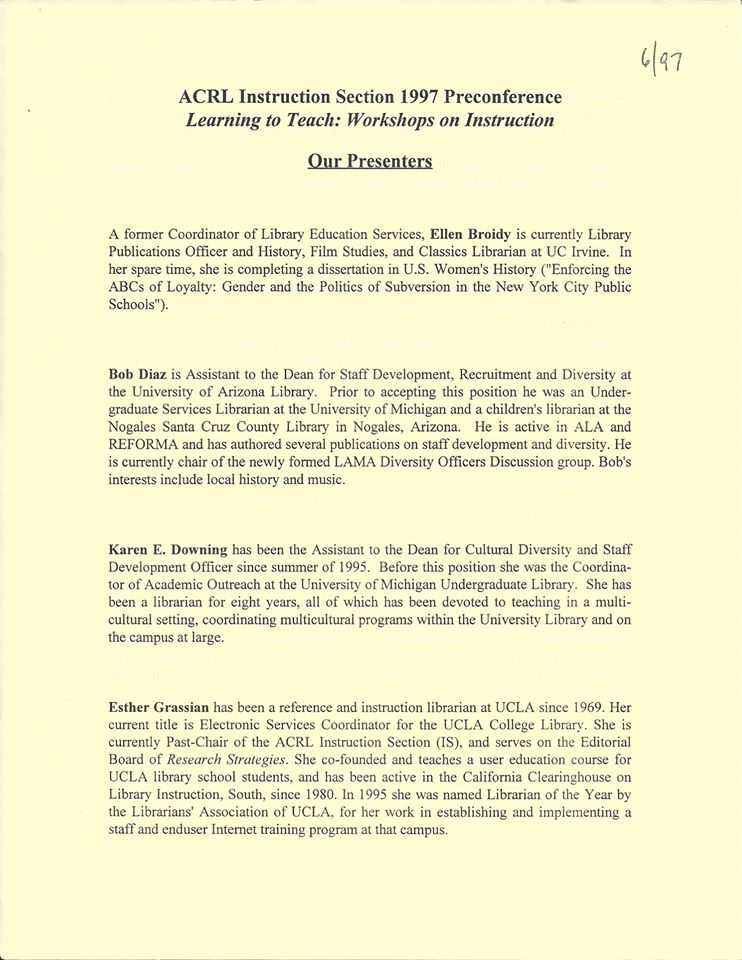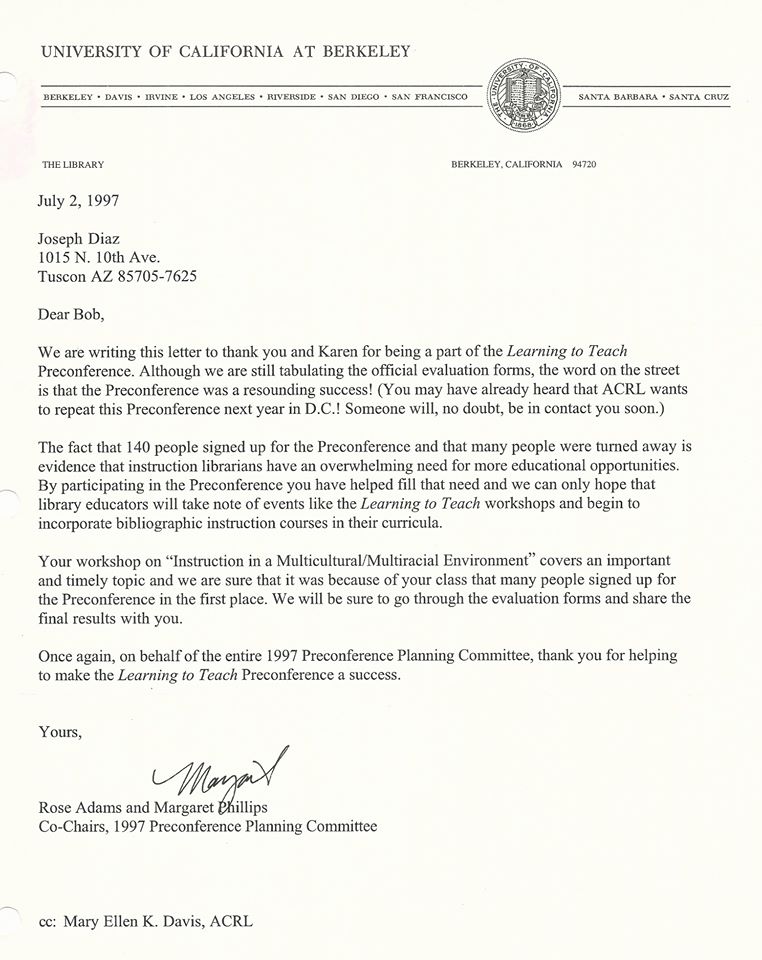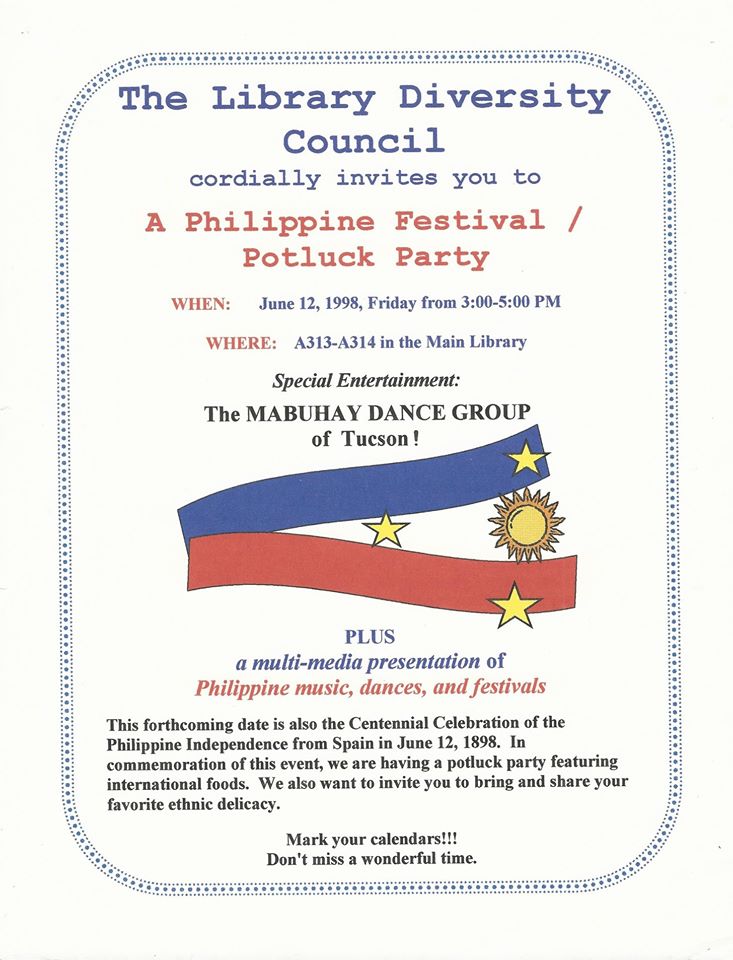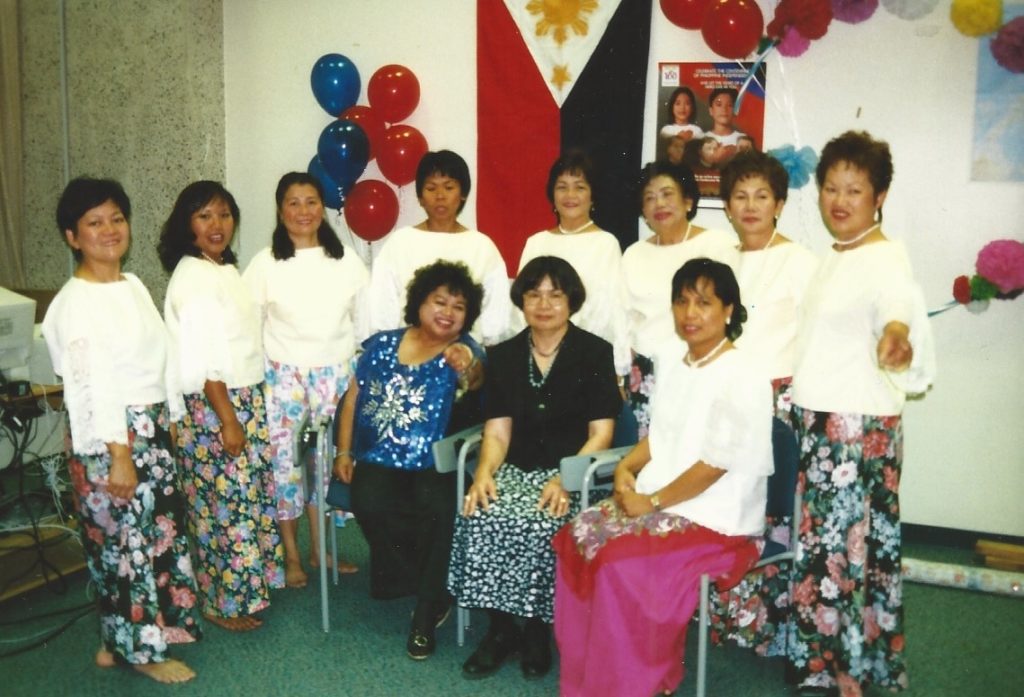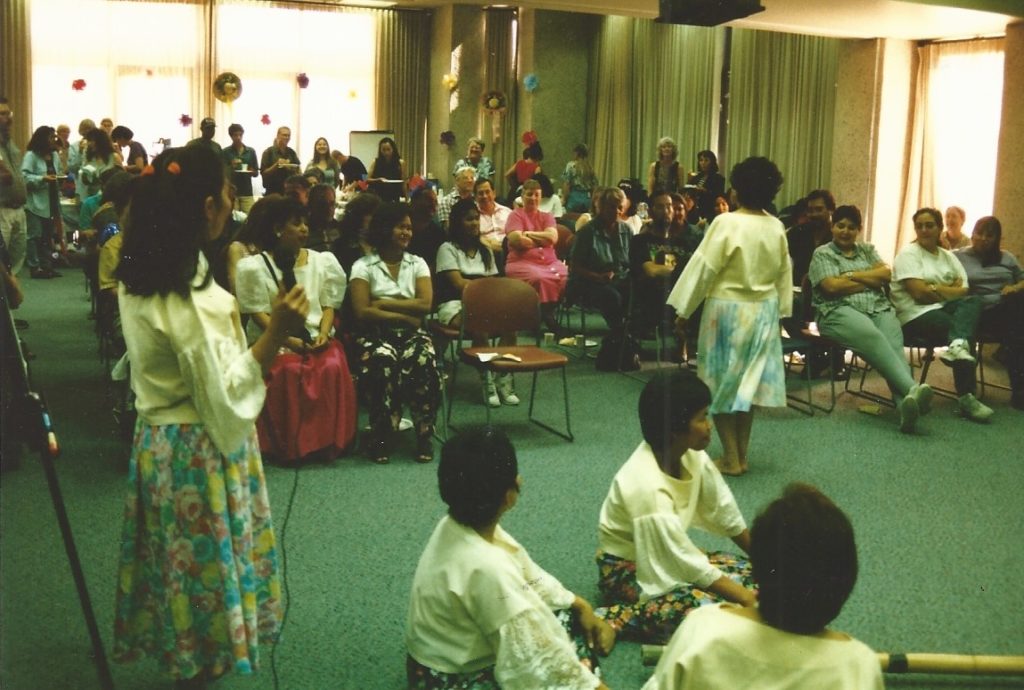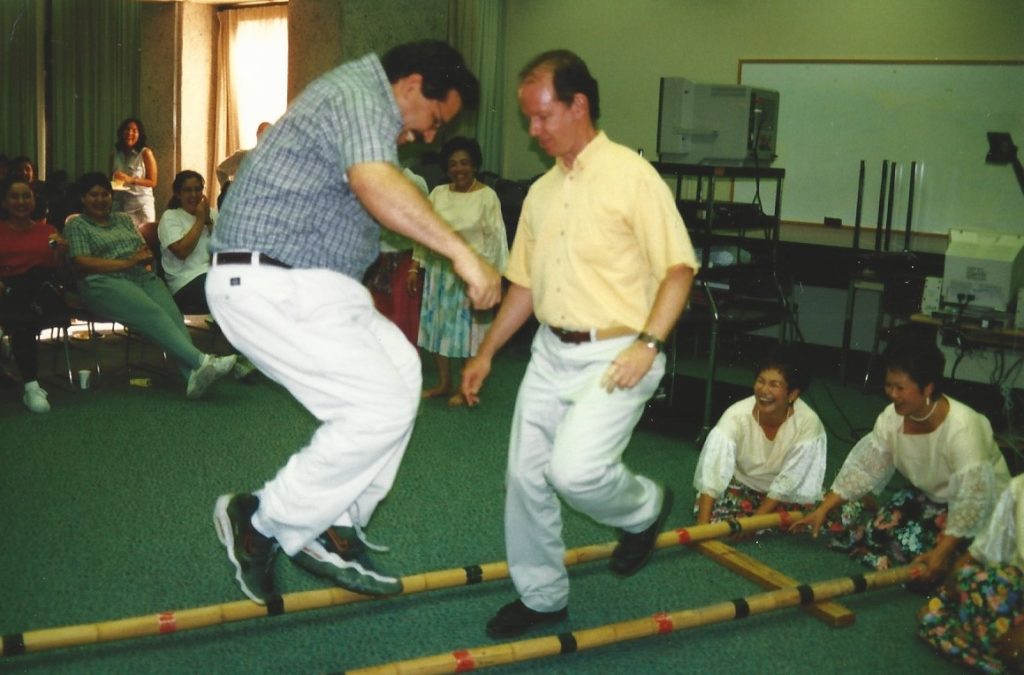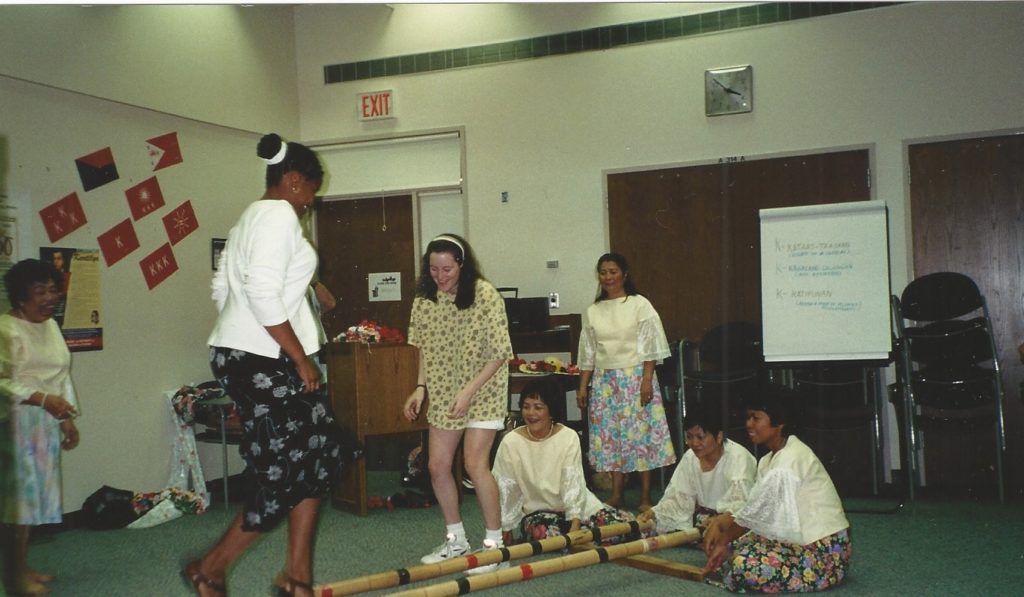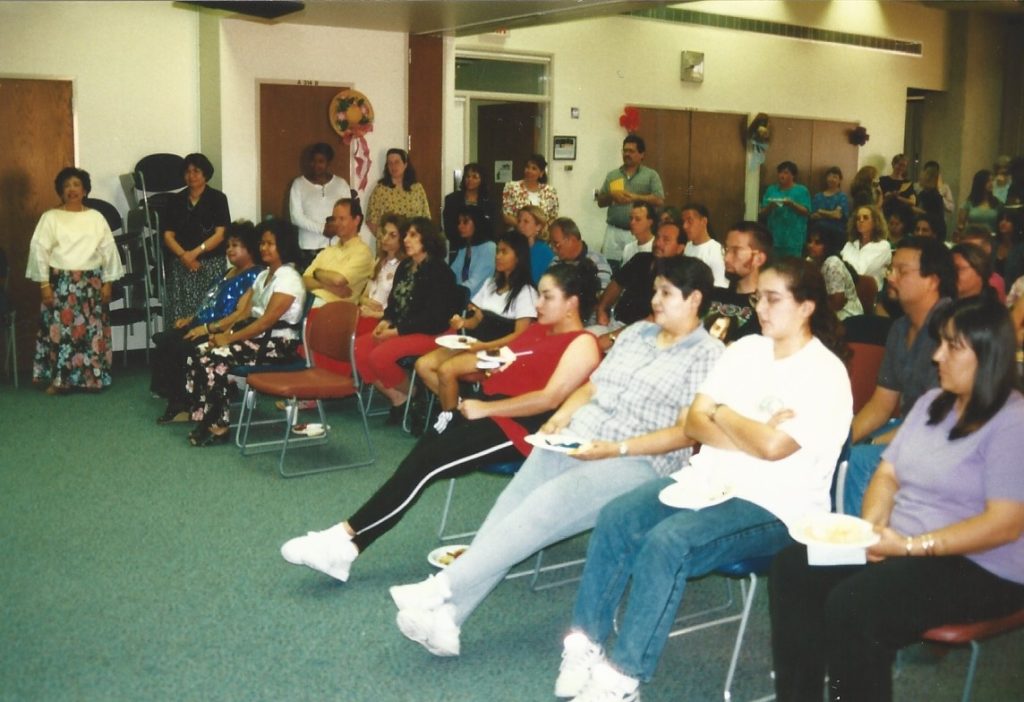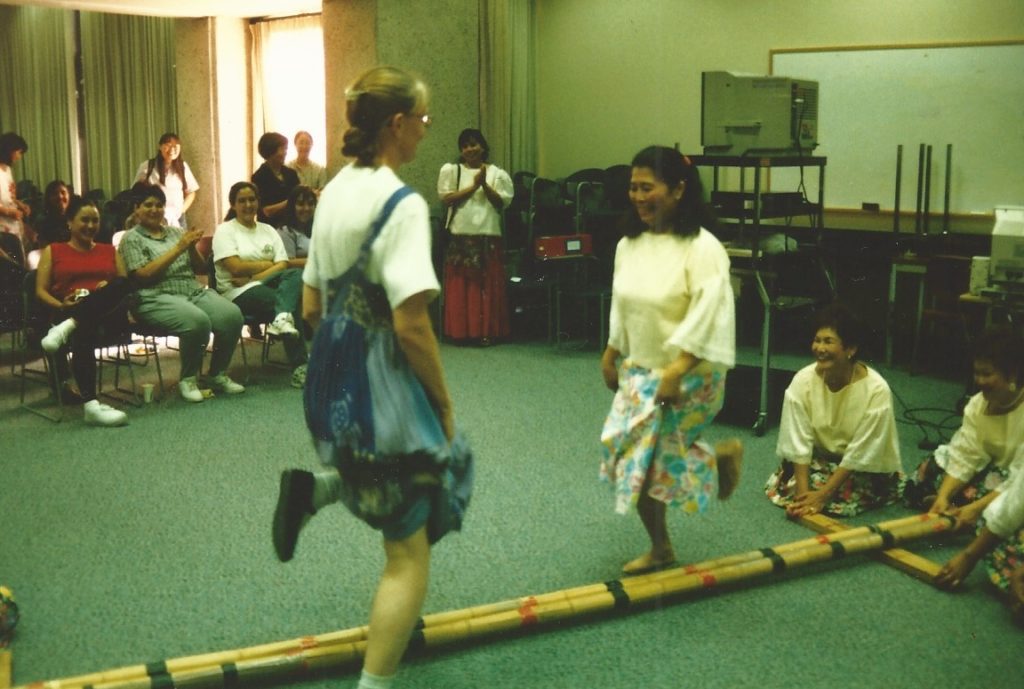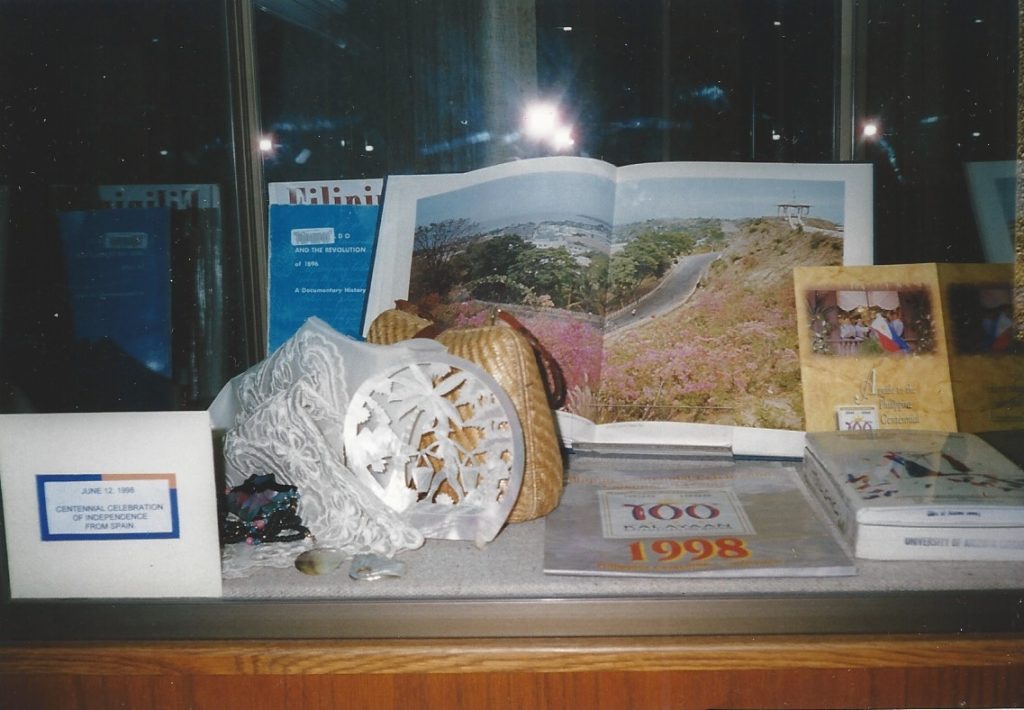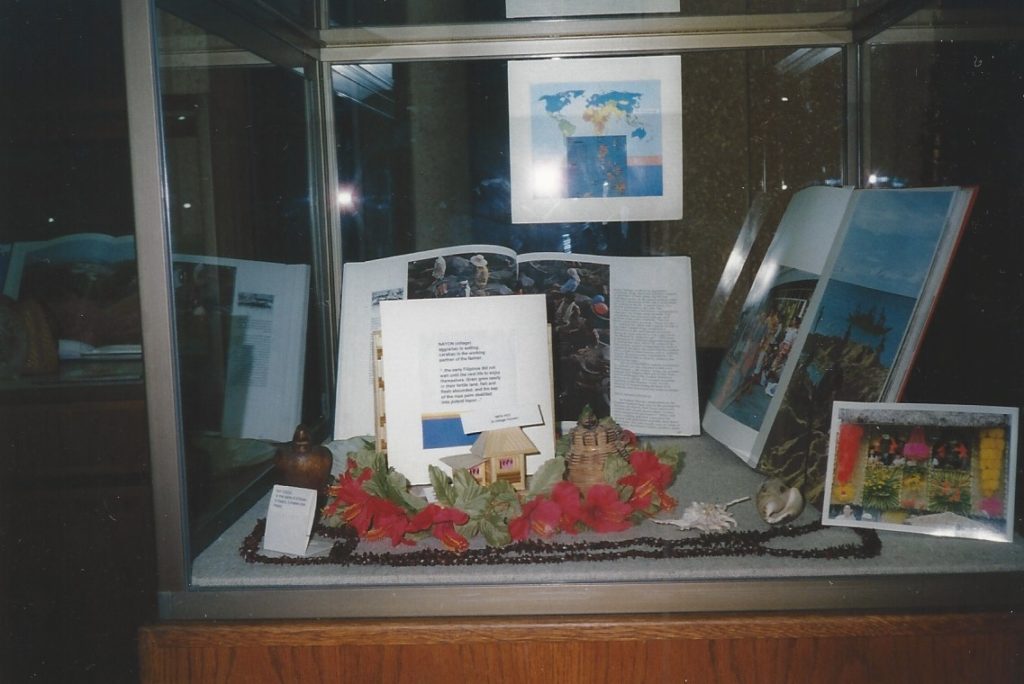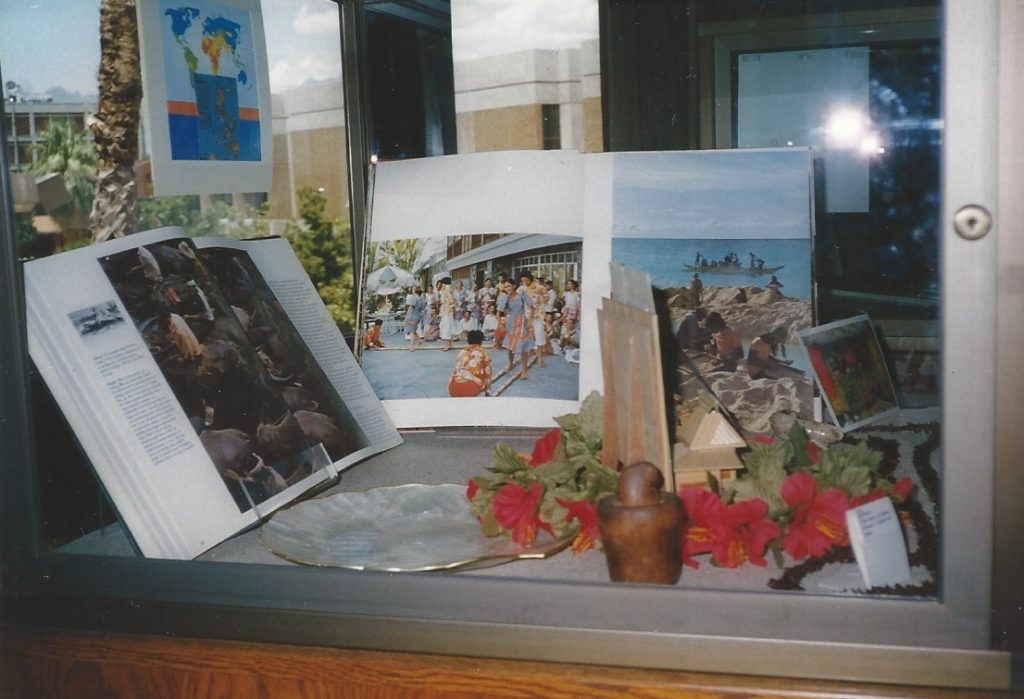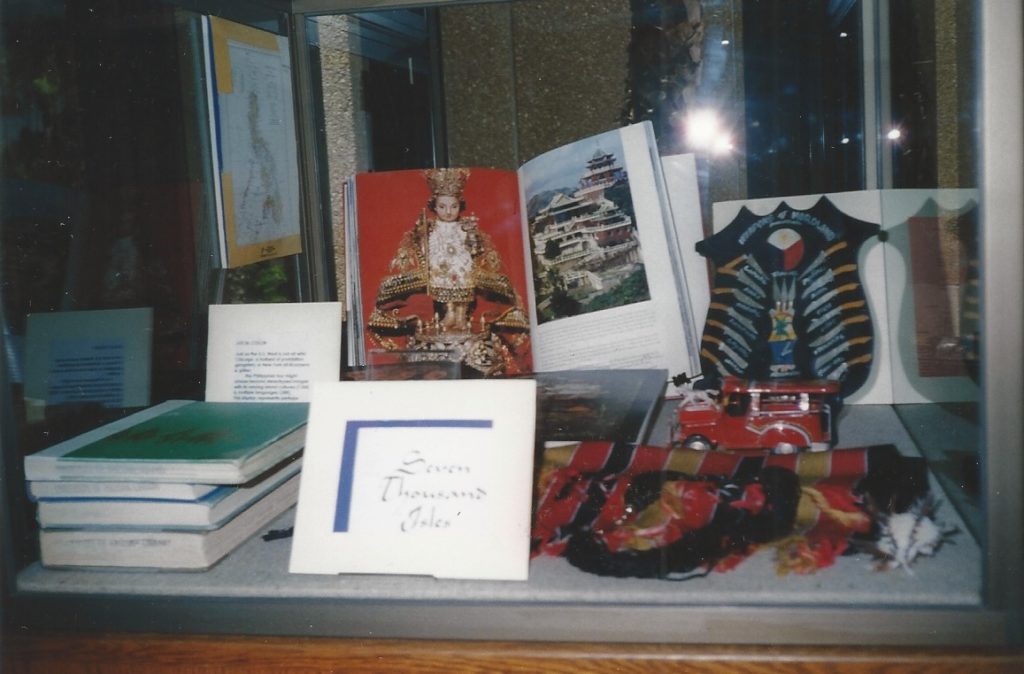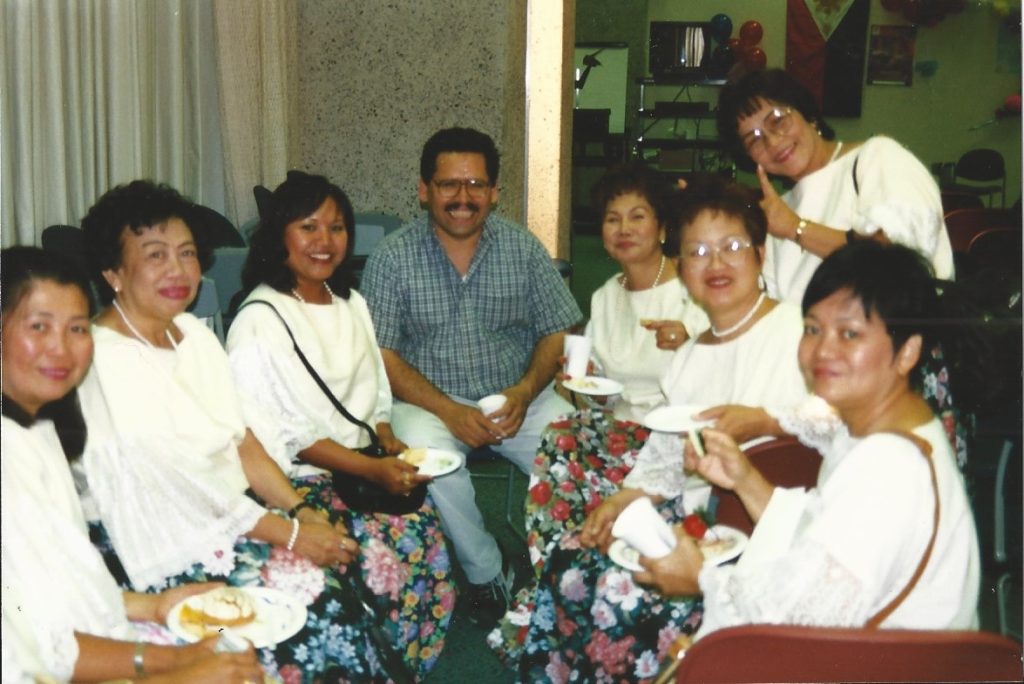I put this poster session together in April, 2000 for the Diversity Now! Conference held in Austin, Texas when I was the Assistant to the Dean for Staff Development, Recruitment and Diversity at the University of Arizona Libraries. I had worked since 1992 as Carla Stoffle’s assistant, and my main goal in this position was to help the Library move forward in becoming what at the time we called a “multicultural organization”. I worked with the Library’s Diversity Council on providing programming and training for the staff, and with the Library’s Cabinet to formulate policy statements and workplace expectations. The documents below all come from that time period. This poster session took place the same year that I stepped down from my position as Assistant to the Dean for Staff Development, Recruitment and Diversity to join the Fine Arts/Humanities team and begin a new chapter in my career as a music and dance librarian.
Abstract:
For the past ten years, the University of Arizona Library has
maintained a strong commitment to promoting and incorporating diversity into the everyday life and culture
of the organization. The purpose of this program is to describe the key components
of this initiative, which include adding diversity in the mission, vision, and
values of the organization, creating a half time administrative position
dedicated to promoting diversity, the formation of an active Diversity Council
whose mission is to model and promote diversity through educational programming
and training, and the active pursuit of campus and community partnerships that
foster and promote diversity. Numerous examples of the varied programming,
training and cooperative efforts will be highlighted.
INITIAL CAMPUS EFFORTS
In the late 80’s, following
the lead of other institutions like the University of Michigan and Stanford
University, University of Arizona President Henry Koffler mandated that
diversity become an campus-wide priority. The Campus Diversity Action Plan was published shortly
thereafter.
Diversity at the campus
level was defined as:
Diversity
encompasses differences in age, color, ethnicity, gender, national origin,
physical or mental ability, race, religion, sexual orientation, socioeconomic
background, Vietnam Era veteran status, or unique individual style.
UNIVERSITY OF ARIZONA DIVERSITY ACTION PLAN MISSION
STATEMENT
The purpose of the Diversity
Action Plan is to develop a campus climate which understands, accepts, and
embraces the value of diversity among students, faculty and staff. This will be
accomplished through a comprehensive and broad application of the concept of
diversity. Diversity encompasses differences in age, color, ethnicity, gender, national origin, physical
or mental ability, race, religion, sexual orientation, socioeconomic
background, Vietnam Era veteran status, or unique individual style. The program
comprises the following components:
Initial and ongoing
assessment of the attitudes, expectations, and needs of students, faculty,
staff, and administration relevant to issues of diversity
Provision of educational
information and resources regarding the unique characteristics of various
groups
Facilitation of personal
understanding, tolerance, acceptance and valuing of diversity through
structured training programs which will be required of all
members of the University
community
Enhancement of general
social awareness of the value and importance of diversity through public
activities, celebrations, and events
Integration into academic
and training curricula specially-designed courses which promote positive
attitudes and understanding of diversity and the
incorporation of materials
addressing diversity into all areas of the academic curriculum
Evaluation of the impact of
the program through utilization of a variety of assessment methods
The focus of this program
will be to assure that all persons affiliated with this institution believe
that their individual characteristics, talents, and contributions are valued.
University of Arizona Library Mission Statement
The University of Arizona
Library is dedicated to meeting the diverse
information, curricular and research needs of students, faculty, staff and
affiliated customers. In an environment of free and open inquiry and with a
commitment to excellence, the Library participates in the scholarly
communication process to promote life-long learning skills and continuous
educational achievement.
The University of Arizona Library Vision Statement
To be recognized as the
primary community for access and appropriation of information
By developing excellent
services that meet expressed and anticipated needs of the learner, and that aim
to exceed expectations
By building a diverse staff, valued for their
knowledge and abilities in gathering, organizing, and distributing information,
prepared for collaborative learning and recognized as partners contributing to
the research enterprise
By outreach with students,
staff and faculty
INITIAL
LIBRARY EFFORTS
In 1990-91, the
University created a Diversity Task
Force, later renamed the Library Diversity Council.
The Task Force set to work
on studying the efforts of other Universities and made a number of
recommendations to the Library administration that were intended to move the
Library forward in achieving diversity.
One of its first
accomplishments was the creation of a Library Diversity Mission Statement and
formation of the LIBRARY DIVERSITY
COUNCIL.
UNIVERSITY OF ARIZONA LIBRARY DIVERSITY MISSION
STATEMENT:
The University
of Arizona Library has a dual dimension:
(1) it is an institution whose function is to collect and provide access
to information and ideas that have derived from varied intellectual traditions
representing peoples and cultures over many centuries; (2) it is a community of people, a microcosm
of the University community, which seeks
to represent the richness of human diversity and to integrate and promote this
pluralism. Through its collections and
services, the Library seeks to be a MODEL OF and a MODEL FOR this intellectual
and social diversity. Our vision for
diversity represents a new effort to move beyond statements of concern to plans
for action which will encourage diversity among our patrons and staff as well
as our collections and services. The
University of Arizona Library guarantees students, scholars and staff equitable
access to its resources and for employees, equal access for advancement,
without regard to their race, color,
creed, religion, national origin, sex, sexual orientation, ancestry, age, marital status, handicap, or
Vietnam veteran status.
UNIVERSITY OF ARIZONA LIBRARY DIVERSITY COUNCIL BYLAWS
1. Constituency
The Diversity Council
consists of 9 members who are appointed to staggered two year terms. Before
being appointed chair of the Council, a
person must have served at least one year on the Council and can be either
appointed or classified staff.
Members will be selected
from Library staff who have expressed interest, via memo or other means, to
serve on the Council and will be broadly representative of the diversity in the
community and all job categories in the Library. Staff from diverse groups are
encouraged to
become members of the
Council, but the most important factor for membership is interest. The Council
will make recommendations to the Dean for Libraries for new council members at
the end of the fiscal year.
Ex officio members of the
Council are the Dean of Libraries and the Assistant to the Dean for Staff Development,
Recruitment an Diversity.
At the end of their two year
term, council members may request to continue for a full term or for one year
only. They may also continue on committees on a year-to-year basis as
non-council members.
2. Committees (task forces
of the council):
In order to accomplish
specific tasks or goals, the council may initiate committees that consist of
members of the Council and other interested Library staff. Some committees may
be standing committees of the Council; others may be formed to accomplish a
specific task, such as the Diversity
Film Series. Non-council members serving on committees will be appointed on a
year-to-year basis. Before being appointed chair of a committee, a person must
have served at least one year on the Diversity Council.
3. Authority and Charges:
The Diversity Council
reports to the Dean of Libraries with the following authority and charges:
The Council will be an
advisory board for the Dean and the Library Cabinet and will make
recommendations concerning diversity issues and their impact on existing
policies and procedures. It will also make recommendations for changes to
policies and procedures or make recommendations for implementation of new
policies and procedures.
The Council will work to be
a model for the Library for creating a multi-cultural organization.
The Council will be a
resource on issues of diversity to all staff.
The Council will assess
needs and assist the Library in moving towards a diverse environment.
The Council will set long
range goals to meet the University and Library mission statements.
The Council will provide
training on diversity issues.
The Council will communicate
and coordinate programs and events with related committees and groups within
the Library, the University, and the Tucson community.
Subsequent
efforts to incorporate diversity at all
levels of the organization have included:
- adding diversity to the Library’s mission, vision and values
statements.
- creating a half time administrative position devoted to diversity
- including diversity in the Library’s strategic planning efforts.
- adding diversity related questions to all job interviews.
- incorporating diversity expectations
into all job descriptions, including those of work team leaders and team
leaders.
- aggressive programming and training efforts, in collaboration with
other campus units, aimed at all levels
of staff, including administrators.
TEAM LEADER INTERVIEW PROCESS
Whenever the Library
recruits for a new team leader, the Diversity Council is included in the
interview schedule. Other groups that meet with a candidate also typically ask
diversity related questions. A sampling of such questions is listed below.
================================================================
The Library is a
multicultural environment and is committed to maintaining diversity to serve
our customers. Describe where you have worked with diversity and how you have
promoted it in positions you have held.
The Library’s
Diversity Value Statement is: We value, respect, and are strengthened by
viewpoints and experiences outside the dominant culture. We strive to build a
multicultural organization. Describe situations where you have acted on this
value.
As a team leader,
part of your job will be to chair selection committees for open positions
within your team. Please explain your understanding of diversity related issues
as they pertain to recruitment and selection of employees. How would you
balance the need to create a multicultural institution with other compelling
factors?
How have you
participated in diversity education and how have you encouraged diversity in your previous positions? Are there other
related activities that you have taken part in?
Describe any
challenging situations in your previous positions where diversity was an issue.
How did you deal with the situation and what was the outcome?
As a team leader,
what programs can we count on you to implement to encourage diversity thinking
on your team?
Can you share with us
an experience you have had where diversity within a team precipitated
conflict–and share with us what your response to that conflict was?
How have you learned
to work effectively with people who are very different from you–either in
culture, gender, sexual preference, age, temperament, etc.?
As a team leader,
what would you expect from the Diversity Council?
DIVERSITY IS BUILT INTO TEAM
LEADER AND WORK TEAM LEADER EXPECTATIONS DOCUMENTS. EACH TEAM LEADER IS EVALUATED BASED ON HIS/HER ABILITY TO MEET EACH EXPECTATION.
THE UNIVERSITY OF ARIZONA LIBRARY
EXPECTATIONS OF TEAM LEADERS
1. Understands and
communicates the Library’s mission, vision, values, goals, and while conveying
the larger context in which the Library operates, exhibits personal commitment
and takes leadership in creating team commitment to achieving them. Leads team
in translating library and team strategic goals into action.
2. Promotes team commitment
to a customer focus.
3. Works proactively and
constructively to identify, define, and solve problems within their own team
and between teams and other individuals and teams. Works with team members to
develop coaching mechanisms to help individual team members who are having
performance problems.
4. Facilitates and involves
all team members in team planning, objectives setting, and problem solving,
empowering and holding team members accountable for participation and results.
5. Works with team to define
team and team leader roles and appropriate methodology for decision-making.
Seeks and utilizes data and objective criteria for decision-making. Helps team
recognize options and consequences of team decisions. Has final accountability
for seeing that decisions get made and that there is appropriate follow
through.
6. Fosters an environment
that encourages risk taking and creativity.
7. Works proactively and
constructively to develop and coach team members to be self-motivated; ensures
professional, career, and skill development; ensures structure is in place for
all team members to participate in the coaching and development of all staff.
8. Communicates and leads
development of team understanding and support of library-wide decisions and
priorities; helps the team communicate and create understanding of team issues
library wide.
9. Helps promote and support
diversity within the team and the Library.
10. Works with the team to
build self-managing capabilities including effective delegation to sub-teams
and individuals.
11. Champions
cross-functional efforts to improve quality, service, and productivity.
12. Anticipates, initiates,
and responds to changes in the environment to help the Library move forward.
13. Leads in management of
budgets and fosters understanding of and responses to internal and external
funding opportunities and constraints.
THE UNIVERSITY OF ARIZONA LIBRARY
EXPECTATIONS OF WORK TEAM LEADERS
Definition
The primary purpose of a
Workteam Leader is to take leadership in facilitating processes within the
scope of a specific workteam to enable
the workteam to accomplish its work.
Assumptions
1. That the Performance
Learning Project will result in each team developing work and behavioral
expectations for all members and a mechanism for holding each other
accountable.
2. Team will use these
expectations as a basis for a dialog about observable outcomes.
Expectations
1. Understands and communicates the Library’s
mission, vision, values, goals, and, while conveying the larger context in
which the Library operates, exhibits personal commitment and takes leadership
in creating workteam commitment to achieving them. Leads workteam in
translating library and team strategic goals into action.
2. Promotes workteam commitment to a customer
focus by modeling appropriate customer service behavior and responding
appropriately to customer needs.
3. Works proactively and constructively to
identify, define, and solve problems within their own workteam and between
workteams and other individuals and teams.
4. Facilitates and involves all workteam members
in workteam planning, objectives setting, defining expectations, and
problem solving, empowering and holding
workteam members accountable for participation and results.
5. Works with team to define team and work team
leader roles and how decisions are made. Helps
workteam recognize options and
consequences of workteam decisions. Is individually accountable for seeing that
decisions get made and that there is appropriate follow through. It may be
necessary for workteam leaders to make
decisions for the workteam in limited circumstances such as the workteam being
unable to reach a decision or during special circumstances.
6. Coordinates the gathering,
analysis, and utilization of data and information to make decisions.
7. Models and encourages creativity and informed
risk taking.
8. Works proactively and constructively to
develop and coach workteam members to be self-motivated and to be lifelong
learners.
9. Communicates and leads development of
workteam understanding and support of library-wide decisions and priorities;
helps the workteam communicate and create understanding of team issues
library-wide.
10. Demonstrates support for diversity as defined
by the Library.
11. Works with the workteam
to build self-managing capabilities including effective delegation to workteam
members.
12. Champions process
improvement and other cross-functional efforts to improve quality, service, and
productivity.
13. Anticipates when
possible, participates with an open mind, and responds appropriately to changes
in the environment.
14. Understands the
allocation of budget and resources process. Leads in management of budgets and
resources.
15. Attends and actively
participates in workteam meetings.
16. Models good communication
skills by actively listening and giving and receiving constructive feedback.
17. Interprets, communicates,
and applies relevant library policies.
18. Identifies and implements
effective ways of making staff and students feel accepted and valued.
19. Leads and participates in
the hiring process, primarily within the workteam.
20. Takes leadership in
developing and implementing a training program for staff and students which may
include customer service.
21. Schedules work to ensure
that time is available for consultation with and coaching of staff and
students. Maintains an open attitude to staff,
students, and their ideas.
22. Develops facilitation
skills, uses them, and supports workteam members in doing the same.
1998/99 LIBRARY STRATEGIC PLAN (partial)
GOAL 4, “STAFF
ENVIRONMENT”: To transform the Library work environment and culture to
improve the way staff are supported through programs and activities that
enhance their ability to achieve the Library’s Mission.
CONTEXT STATEMENT: Sustained support and effort on both the
individual and group level is instrumental to the success of a team-based
learning organization. We hold ourselves and each other accountable for
achieving the Library’s mission and for resolving any conflicts that arise in
this process. Creative flexibility is needed in the ways in which the Library
manages work assignments, promotes career progression, and promotion, pursues
and provides competitive salaries, supports continuous education and learning,
evaluates performance, and recognizes and rewards staff achievements.
To serve an
increasingly diverse population, the Library recognizes that diversity among
its staff is a strength in understanding, responding to, and respecting the
needs of our customers.
Staff need opportunities to develop proficiencies in
utilizing technologies and other tools to achieve new and higher
performance satisfaction levels.
OBJECTIVES:
1. INDIVIDUAL AND TEAM DEVELOPMENT: To support individual
and team development through the continuing work of the Performance Project
Team, through December 31, 1998; and through the developmental systems that are
created by this project, by June , 2000.
2. REWARDS AND RECOGNITION: To strengthen employee rewards
and recognition by enhancing existing programs and developing new ones, by
June, 1999.
3. MINORITY
RETENTION: To increase the retention of minority individuals within the Library
by openly addressing issues of participation and mentoring, as well as white
privilege, racism and other forms of injustice by June, 2000.
4. MINORITY
RECRUITMENT: To increase the diversity of the Library and better serve our
increasingly diverse customer base by proactively recruiting and hiring
minority librarians and career staff by June, 1999.
University of
Arizona Position Description
Position
Title: Assistant to the Dean for Staff Development,
Recruitment and Diversity
Position type: Appointed personnel, full time, exempt.
Department: Library
Support Team
Reports to: Dean of the Library/LST Team Leader
Regular Hours of Work (indicate
if changes occur)
8am to 5pm
The Library is an innovative,
team-based organization committed to continuous learning, increasing customer
self-sufficiency and fostering a diverse environment. Our mission includes furthering cultural
transmission, preservation and the educational roles of the Library.
All work that addresses customer
needs will be performed (e.g. circulation, reference, check-in, cataloging,
process improvement, etc.). Individuals
can expect that this work will include team-wide and Library-wide work (e.g.
process improvement teams, meetings, planning, Strategic Long Range Planning,
etc.). As customers’ needs change, our
work formula or patterns may change. As
a result, team and Library work is negotiated within the team, the end product
being an agreement in writing in the performance evaluation.
The incumbent performs the work
appropriate for a librarian, as needed
within the team, to meet the changing needs of the Library’s customers. As those needs change or disappear it may be
necessary to reassign staff to areas in greater need of support and to change
work hours to accommodate our customers.
Each team member is responsible
for:
* understanding
and communicating the vision, mission and priorities of the Library and the
team(s) in order to move the Library and team(s) to their goals
* committing
to excellence, process improvement and continuous learning
* participating
in the planning and decision-making processes for customer services
* obtaining
the information necessary to perform his/her job
* accepting
change and exhibiting flexibility in working within teams and dealing with team
and Library-wide issues and concerns
* helping
fellow team members in a team-based work environment and participating on cross-functional
and process improvement teams in the Library as necessary
* attending
and participating in team meetings and projects as assigned and facilitating
and leading meetings as needed
* solving
as many of their own problems as possible; expected to resolve issues close to
the action rather than to pass responsibility for solutions to others and are
empowered to do so
* making
decisions at appropriate levels
* prioritizing
work
* maintaining a customer service
orientation
* challenging
him/herself and colleagues to think creatively and broadly
II. PURPOSE/OUTCOME OF THIS POSITION:
The development
of a supportive and responsive multi-cultural and diverse working environment
is a top priority for the University of Arizona Library . Creation of such an environment involves
pursuing new strategies for recruitment of librarians and addressing staff
development issues relating to diversity and other change processes in which
the Library will be involved. This
position will be responsible for coordination of all staff development programs
and professional recruitment, and will carry out special projects relating to
personnel policy and procedures. The incumbent will participate fully in the
Dean’s Cabinet meetings, and act as liaison with the Staff Development
Committee, Affirmative Action Committee, and the Diversity Action Council. The position reports to the Dean of the
Library.
To contribute to
the profession and the professional literature to fulfill the responsibilities
of a library faculty member through service (e.g., active participation in
library-related associations and organizations) and scholarship (e.g.,
presentations at local and national conferences and meetings, publication of
original research).
As a member of
the library profession, the Library Faculty Assembly, and the general faculty
of the University:
* To resist censorship of library
materials and eliminate barriers to access to
information
* To commit to intellectual freedom in
the pursuit of truth and knowledge for
customers and staff
* To commit to honesty and respect for
customers and staff
* To commit to the professional Code of
Ethics for Librarianship
* To be involved in the governance of the
Library and the University through service
in the Library Faculty Assembly and on
appropriate University committees
III. PRINCIPLE RESPONSIBILITIES
1. (.5 time) Coordinates the Library’s staff development
activities. Works with an advisory
committee, members of the Library’s
Human Resources team and a .5 administrative secretary to conduct needs
assessment, plan and implement training
and professional development for librarians and staff. Administers Staff
Development Fund and Special Workshops Fund.
Coordinates new staff orientation.
2. Acts as the administrative liaison with
the Affirmative Action Office, University Diversity Council, the Provost’s
Office on Appointed Personnel and the University Human Resources Department
(where appropriate). Updates and
monitors the Library’s Affirmative Action Plan and Diversity Action Plan in
conjunction with appropriate committees. Administers Diversity Fund.
3. Works with the Library Diversity Council
to coordinate programs in support of building a multicultural
organization. Provides leadership to the
Diversity Council as it strives to become a model the Library in working across
racial and ethnic lines.
4. Works with
other members of the HR Team to assess needs for team development, systems and
process change, new policies and procedures that support the continued success
of the Library with its customers.
5. Works in
conjunction with Library’s human resources specialist and selection teams to
ensure that recruitment pools for professional positions are diverse. Provides guidelines and support for search
committees. Insures compliance with
University EEO/AA and Diversity plans.
Assists with interviews of candidates on site and at professional
meetings.
6. Participates
fully in leadership activities of the Library through membership on
Library
Cabinet.
7. Supports the
library profession beyond primary job responsibilities through involvement in
professional service and scholarship.
LIBRARY-WIDE RESPONSIBILITIES:
1. Participation
in library strategic project teams, cross-functional teams, and other teams
required to complete the goals of the Library:
The Library Diversity Council has proactively
partnered with other campus units and groups, including the University
Diversity Action Council, the College of Agriculture’s Diversity Committee,
and the Commission on the Status of
Women to provide top notch programming, training and celebratory events that
unite the campus and the Library community.
Recruitment of a Diverse Staff
A key
responsibility of the Assistant to the Dean for Staff Development, Recruitment
and Diversity has been to proactively recruit people of color to apply for open
positions at the University of Arizona Library. This has been accomplished
through:
- training selection committees on diversity and affirmative action
issues
- attending conferences and handing out recruitment packets to librarians
of color and other diverse individuals.
- developing a network (database) of potential recruits and sending them
invitations to apply for positions currently under recruitment
- advertising the UA’s vacancies on listservs that reach librarians of
color. These include REFORMANET, EQUILIBN,
the Chinese American Librarian’s
listserv, DIVERSITY-L, and AFAS-L, the listserv of the AFAS Roundtable.
